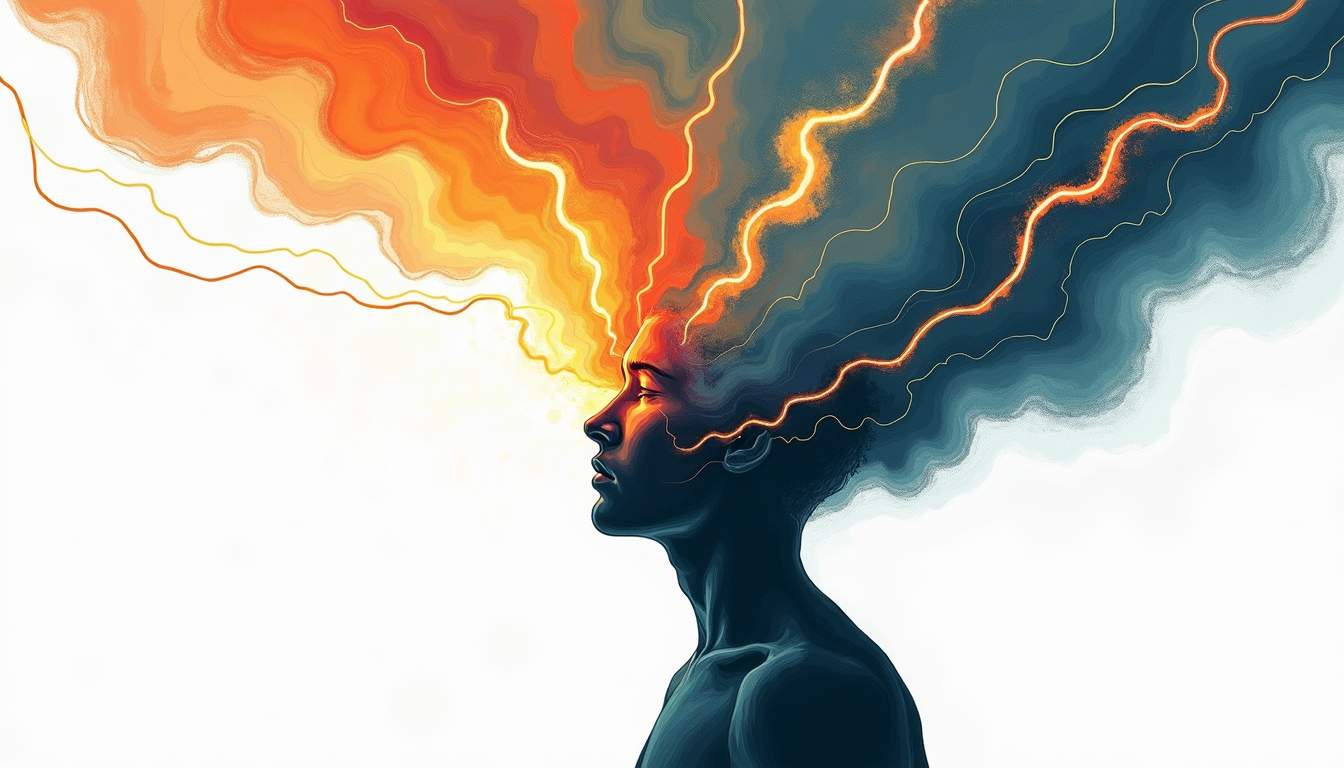
Mental health is an essential component of overall well-being, yet it often goes unnoticed until challenges become overwhelming. Recognising the early signs of mental health distress can make a significant difference in how effectively someone manages their condition and seeks support. Early intervention not only improves outcomes but also reduces the risk of more severe complications down the line.
This article explores the subtle and sometimes overlooked indicators of mental health distress, helping readers understand what to watch for in themselves and others. By fostering awareness and compassion, individuals and communities can create supportive environments that promote mental wellness.
Understanding Mental Health Distress
Mental health distress refers to a state where an individual experiences emotional, psychological, or social difficulties that affect their ability to function effectively in daily life. It is different from a diagnosed mental illness but can be a precursor to one if left unaddressed.
Everyone experiences stress and emotional ups and downs, but when these feelings persist or intensify, they may signal underlying distress. Recognising these signs early allows for timely support and intervention, which can prevent the escalation of symptoms.
Why Early Recognition Matters
Early recognition of mental health distress is crucial for several reasons. Firstly, it enables individuals to seek help before symptoms worsen, reducing the impact on their personal and professional lives. Secondly, it allows friends, family, and colleagues to provide appropriate support and understanding. Lastly, early intervention often leads to better treatment outcomes and a quicker recovery.
Moreover, being proactive about mental health can foster a culture of openness and support within communities. When individuals feel empowered to discuss their mental health challenges, it can diminish the stigma often associated with mental illness. This openness not only benefits the individual but also encourages others to share their experiences, creating a ripple effect that promotes collective well-being.
Common Causes of Mental Health Distress
Mental health distress can arise from a variety of sources. Life events such as loss, trauma, or significant change can trigger emotional difficulties. Chronic stress from work, relationships, or financial pressures also contributes. Additionally, biological factors like genetics or chemical imbalances may play a role, as can lifestyle factors including poor sleep, diet, and lack of exercise.
Furthermore, societal influences such as social media exposure can exacerbate feelings of inadequacy or anxiety, particularly among younger populations. The constant comparison to curated online personas can lead to a distorted self-image and increased pressure to conform to unrealistic standards. Understanding these multifaceted causes is essential for developing effective strategies for prevention and support, allowing individuals to navigate their mental health journeys with greater resilience and awareness. For more information and guidance, you can visit Shire Doctors and Dentists through the following link: https://maps.app.goo.gl/PECvY
Recognising Emotional and Behavioural Signs
Emotional and behavioural changes are often the first indicators that someone may be struggling with mental health distress. These signs can be subtle and easily mistaken for normal fluctuations in mood or personality, so paying close attention is important.
Persistent Sadness or Irritability
One of the most common early signs is a prolonged period of sadness, hopelessness, or irritability. This may manifest as frequent crying, feelings of emptiness, or a general lack of enjoyment in activities once found pleasurable. Irritability might show as impatience or anger over minor inconveniences.
It’s important to note that everyone experiences sadness or frustration occasionally. However, when these feelings persist for weeks or interfere with daily functioning, they warrant attention. Recognizing these signs early can be crucial for intervention, as it allows individuals to seek support before the distress escalates. Engaging in open conversations about emotions can foster a supportive environment, encouraging those affected to share their feelings without fear of judgment.
Withdrawal from Social Activities
People experiencing mental health distress often begin to withdraw from friends, family, and social engagements. They might cancel plans, avoid conversations, or isolate themselves physically. This withdrawal can be a coping mechanism to manage overwhelming emotions or a sign of declining motivation and energy.
Isolation can also lead to a further decline in mental health, as social connections are vital for emotional support and resilience. Friends and family may notice a change in behaviour and should approach the individual with empathy and understanding, offering to engage in low-pressure activities that can help rekindle social connections. Simple gestures, like sending a text or inviting someone for a walk, can remind the person that they are not alone in their struggle.
Changes in Sleep Patterns
Sleep disturbances are a common symptom. This could include difficulty falling asleep, staying asleep, or sleeping excessively. Both insomnia and hypersomnia can exacerbate feelings of fatigue and emotional instability, creating a vicious cycle that intensifies distress.
Sleep is essential for mental health, and disruptions can lead to a decline in mood and cognitive function. Establishing a consistent sleep routine, creating a calming bedtime environment, and limiting screen time before bed can help improve sleep quality. Additionally, discussing sleep issues with a healthcare professional can provide insights into underlying causes and potential solutions, ensuring that individuals receive the support they need to restore their sleep patterns.
Alterations in Appetite or Weight
Significant changes in appetite or weight, either gain or loss, may indicate underlying distress. Some individuals may lose interest in food, while others might overeat as a form of comfort. Monitoring these changes can provide important clues to emotional well-being.
These alterations can also affect physical health, leading to further complications if left unaddressed. It’s essential to approach conversations about weight and eating habits with sensitivity, as these topics can be deeply personal and tied to self-esteem. Encouraging healthy eating habits and balanced nutrition can play a vital role in improving overall mental health, and seeking guidance from a nutritionist or therapist may help individuals develop a healthier relationship with food.
Difficulty Concentrating or Making Decisions
Mental health distress often impairs cognitive functions such as concentration, memory, and decision-making. Tasks that were once simple may become challenging, leading to frustration and decreased productivity. This can affect work, school, and daily responsibilities.
When cognitive functions are compromised, it can lead to feelings of inadequacy and self-doubt, further exacerbating mental health issues. Implementing strategies such as breaking tasks into smaller, manageable steps, using lists to stay organized, and setting realistic goals can help mitigate these difficulties. Additionally, mindfulness practices, such as meditation or deep-breathing exercises, can enhance focus and clarity, providing individuals with tools to navigate their daily challenges more effectively.
Physical Symptoms That May Signal Distress
Mental health distress does not only affect emotional and cognitive functioning; it can also manifest physically. These physical symptoms are often overlooked but can be critical indicators of underlying issues.

Unexplained Aches and Pains
Chronic headaches, muscle tension, stomachaches, or other unexplained physical discomforts can be linked to mental health distress. Stress and anxiety can cause the body to remain in a heightened state of tension, leading to these symptoms.
Fatigue and Low Energy
Persistent tiredness that doesn’t improve with rest might be a sign of emotional strain. Mental exhaustion often accompanies psychological distress, making even simple tasks feel overwhelming.
Increased Heart Rate or Shortness of Breath
Physical manifestations of anxiety, such as a racing heart, chest tightness, or shortness of breath, can be alarming. These symptoms may occur during panic attacks or periods of intense stress and should be taken seriously.
Recognising Changes in Thought Patterns
Distress can alter the way a person thinks about themselves and the world around them. These cognitive changes are important to identify early as they often precede more severe mental health conditions.
Negative Self-Talk and Low Self-Esteem
Individuals may begin to experience persistent negative thoughts about themselves, including feelings of worthlessness or excessive guilt. This negative self-talk can erode confidence and increase vulnerability to depression.
Hopelessness and Pessimism
A bleak outlook on the future or a sense that things will never improve can be a warning sign. This mindset can reduce motivation to seek help or engage in activities that might provide relief.
Intrusive or Disturbing Thoughts
Some people may experience unwanted, distressing thoughts that are difficult to control. These can range from worries about safety to more severe symptoms like suicidal ideation. Immediate support is critical if such thoughts occur.
When to Seek Professional Help
Recognising early signs is only the first step. Knowing when and how to seek professional help is equally important to ensure appropriate care and support.
Indicators That Professional Support Is Needed
If symptoms persist for more than two weeks, worsen over time, or significantly impair daily functioning, it is advisable to consult a mental health professional. Additionally, any thoughts of self-harm or suicide require urgent attention.
Types of Mental Health Professionals
Various professionals can provide support, including psychologists, psychiatrists, counsellors, and social workers. Each offers different approaches, from talk therapy to medication management, tailored to individual needs.
Accessing Help and Overcoming Barriers
Many people hesitate to seek help due to stigma, cost, or lack of awareness. It’s important to remember that mental health is just as vital as physical health, and seeking support is a sign of strength. Community resources, support groups, and online services can also be valuable starting points.
Supporting Others Showing Signs of Distress
Friends, family members, and colleagues play a crucial role in recognising and responding to early signs of mental health distress in others.
Approaching the Conversation with Compassion
Approach the individual with empathy and without judgment. Express concern based on specific observations rather than assumptions. Listening actively and validating their feelings can create a safe space for them to open up.
Encouraging Professional Help
Gently encourage seeking professional support while respecting their autonomy. Offer to help find resources or accompany them to appointments if appropriate. Patience is key, as acceptance and readiness to seek help can take time.
Providing Ongoing Support
Continued support through regular check-ins, invitations to social activities, and reassurance can make a significant difference. Small gestures of kindness and understanding help reduce feelings of isolation and promote recovery.
Promoting Mental Health Awareness and Resilience
Beyond recognising distress, fostering mental health awareness and resilience is essential for prevention and long-term well-being.

Building Emotional Literacy
Encouraging open conversations about emotions and mental health helps reduce stigma and increases understanding. Teaching emotional literacy from a young age equips individuals with tools to manage stress and seek help when needed.
Practising Self-Care and Stress Management
Regular self-care activities such as exercise, mindfulness, adequate sleep, and balanced nutrition support mental wellness. Developing healthy coping mechanisms for stress can prevent distress from escalating.
Creating Supportive Environments
Workplaces, schools, and communities can promote mental health by fostering inclusive, supportive cultures. Providing access to resources, training, and open dialogue encourages early recognition and intervention.
Conclusion
Recognising the early signs of mental health distress is a vital step in promoting well-being and preventing more serious conditions. Emotional, behavioural, physical, and cognitive changes can all serve as indicators that someone may be struggling. By increasing awareness, encouraging compassionate conversations, and seeking professional support when necessary, individuals and communities can make a profound difference in mental health outcomes.

Understanding that mental health is a continuum and that distress is a common human experience can help reduce stigma and empower people to take proactive steps. Early recognition and intervention not only improve quality of life but also foster resilience and hope for the future.